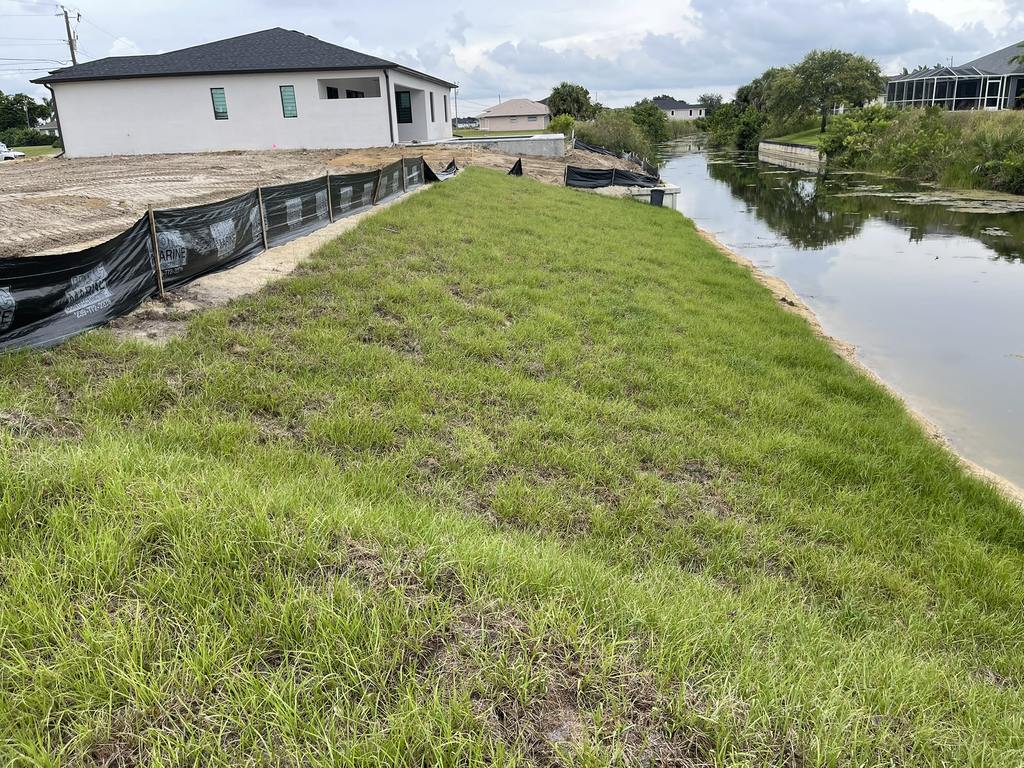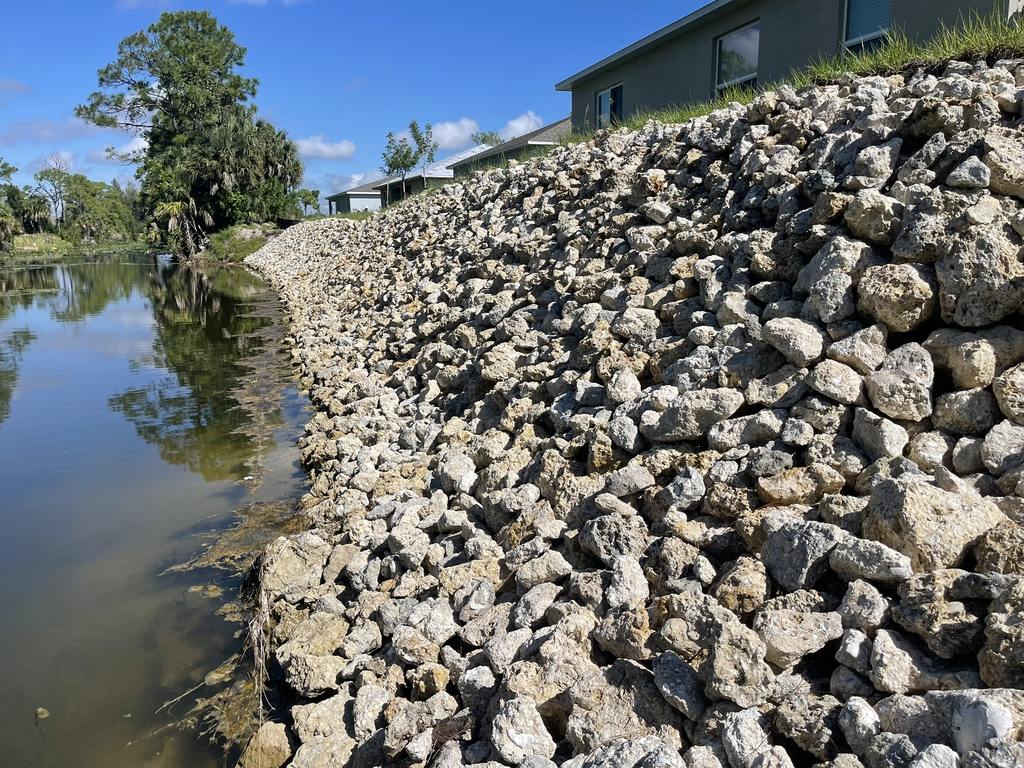Alternative seawall regulations vary in Southwest Florida
Regulations on alternative forms of seawalls vary widely within Southwest Florida. For example,
Cape Coral requires a form of shore hardening in order to build homes on vacant lots. Lots that are on saltwater bodies of water can only have concrete seawalls, but freshwater lots can utilize sloped banks or rip rap. The use of rip rap is restricted in certain areas of Lee County. Our experienced estimators are knowledgeable about the restrictions and requirements of using alternative seawalls in Southwest Florida; we recommend you consult with us regarding your options.
What is a sloped bank seawall?
The object of shoreline protection is to stabilize and protect the land against scour and erosion from forces such as wave action, seepage, and runoff from upland areas. A sloped bank seawall is considered a nonstructural stabilization method, whereas flexible structures like rip rap and rigid structures like our concrete seawalls fall into the structural category.
Slope banks consist of grading from the water’s edge or property line on a 4:1 slope. That means for every 4 feet of slope length, the drop is 1 foot. Sod is added to the newly formed slope to assist in erosion prevention.

What is rip rap?
Rip rap is a range of rocks placed along the shoreline to protect it from scour and erosion. The rocks used in rip rap range from 4 inches to over 2 feet. The size of the rocks needed in rip rap depends on the steepness of the slope and how fast the water is moving against it.
Rip rap is used on a steeper 2:1 slope on the water’s edge. Heavy-duty filter cloth is installed over the soil, and the rip rap is placed over the filter cloth. Rip rap needs to be replenished after several years and can become an ideal home for weeds and small animals. This is often a safety concern for families with small children.

The Drawbacks of alternative seawalls in Southwest Florida
Slope banks and rip rap were once considered to be a cost-effective alternative to conventional seawalls. However, due to additional restrictions and regulations that have been enacted in recent years, they can be as costly as concrete seawalls. Alternative seawalls also require additional maintenance over the years when compared to concrete walls. Alternative seawalls also can take up a good amount of the backyard space of a lot, which can make building a pool difficult. Lawn and maintenance companies may also struggle with maintaining the sod along an alternative seawall.